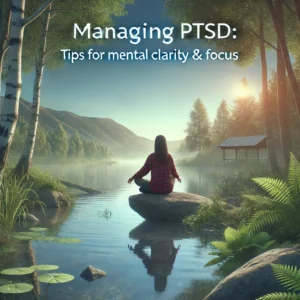Depression is more than just feeling sad or down for a few days. It is a serious mental health condition that can affect every aspect of a person’s life. According to the World Health Organization, depression is one of the leading causes of disability worldwide, impacting more than 264 million people of all ages. Understanding the symptoms and seeking help are crucial steps in managing depression effectively.
Understanding Depression
Depression is a complex mental health disorder with a variety of emotional, physical, and behavioral symptoms. It is important to recognize these symptoms early to seek appropriate help.
Common Symptoms of Depression:
- Persistent Sadness: Feeling down, hopeless, or empty for an extended period.
- Loss of Interest: Losing interest or pleasure in activities that were once enjoyed.
- Fatigue: Constant tiredness or lack of energy, even without exertion.
- Sleep Disturbances: Insomnia or sleeping too much can be indicators.
- Changes in Appetite: Significant weight loss or gain due to changes in eating habits.
- Difficulty Concentrating: Trouble focusing or making decisions.
- Feelings of Worthlessness: Harsh self-criticism or feeling like a burden to others.
- Physical Symptoms: Headaches, digestive problems, and unexplained aches or pains.
Not everyone experiences depression in the same way, and symptoms may vary from person to person. However, if you notice these signs lasting for two weeks or more, it’s important to seek professional help.
Seeking Help for Depression
Acknowledging that you need help is a brave first step toward recovery. Fortunately, depression is treatable, and many people find relief through a combination of therapy, medication, and lifestyle changes.
Steps to Take:
- Talk to a Healthcare Provider: Speak to a doctor or mental health professional about your symptoms. They can assess your condition and recommend a treatment plan.
- Therapy: Cognitive-behavioral therapy (CBT) is one of the most effective forms of therapy for depression. It helps change negative thought patterns and develop coping strategies.
- Medication: Antidepressants can help balance chemicals in the brain that affect mood. A healthcare provider can prescribe the right medication based on individual needs.
- Support Systems: Family and friends can provide emotional support. Joining support groups where individuals share their experiences can also be beneficial.
- Self-Care: Regular exercise, a balanced diet, and good sleep hygiene can improve mood and overall well-being. Mindfulness and meditation are also helpful tools for managing symptoms.
Breaking the Stigma
Many people avoid seeking help for depression because of the stigma associated with mental health. Society often misunderstands depression as a sign of weakness, but it is a medical condition that requires treatment just like any physical illness. Educating others and creating an environment of acceptance and empathy can encourage more people to seek the help they need.
When to Seek Immediate Help
If you or someone you know is experiencing thoughts of self-harm or suicide, it is critical to seek help immediately. Contact a healthcare provider or a crisis helpline. Remember, there is always hope, and reaching out for support is a courageous and life-saving action.
Conclusion
Depression is a challenging but treatable condition. Recognizing the symptoms early and seeking professional help can significantly improve the quality of life. By understanding and managing depression, individuals can regain control of their lives and find peace and joy once again.
References:
- World Health Organization. (2020). Depression. Retrieved from https://www.who.int/news-room/fact-sheets/detail/depression
- American Psychiatric Association. (2013). Diagnostic and Statistical Manual of Mental Disorders (5th ed.). Washington, DC: Author.
- Cuijpers, P., Karyotaki, E., Weitz, E., Andersson, G., Hollon, S. D., van Straten, A., & Ebert, D. D. (2014). The Effects of Psychotherapy for Adult Depression Are Overestimated: A Meta-Analysis of Study Quality and Effect Size. Psychological Medicine, 44(5), 897-910.
- National Institute of Mental Health. (2018). Depression Basics. Retrieved from https://www.nimh.nih.gov




